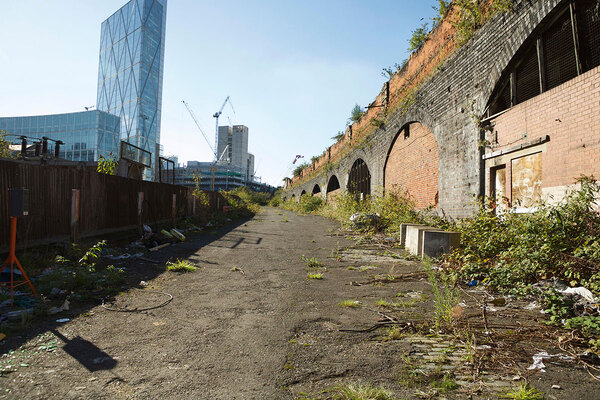You are viewing 1 of your 1 free articles
Time for action to help young people
Millennials are at the sharpest end of our housing crisis and providers must urgently find answers, says Priya Thethi
It can be very easy to blame millennials for society’s ills. We’re apparently responsible for the decline of the soap industry and the gradual eradication of paper napkins. Our inability to afford housing can be blamed on our predilection for avocado toast.
The generalisations and jokes, however, are drawing attention from a grim reality: young people are at the very sharpest end of the housing crisis.
A decline in housebuilding is causing house prices to skyrocket. First-time buyers are being asked for deposits of almost £50,000 – five times the amount asked of their equivalents in the late 1990s. For many, owning a home is now a distant aspiration.
The private rented sector is seeing the fallout: it now accounts for 20% of all households. Among young people this trend is so strong that, with 50% of people aged 20-39 now living in the private rented sector, we have been dubbed “generation rent”.
This is far from ideal, and young people – particularly those claiming housing benefit or Universal Credit – are finding themselves at a loss for affordable, accessible housing. Research by the Residential Landlords Association and the Centre for Regional Economic and Social Research found that 26% of landlords have stopped letting to under-35s on housing benefit in the past three years. Those who remain in the market are increasingly mounting obstacles such as large deposits, rent paid in advance, and guarantors.
“Young people are finding themselves at a loss for affordable, accessible housing.”
So where, then, should young people live? Until now, the social housing sector has been the main tenure meeting the needs of young people in receipt of benefits.
That too is set to change. From April 2019, both housing benefit and the housing element of Universal Credit will be capped at the Local Housing Allowance for people living in social housing. Under this system, young people will be restricted to the shared accommodation rate (SAR).
Research by Crisis in 2012 showed the unwelcome effect of the SAR cap when it applied only to the private rented sector: only 13% of shared properties advertised as available were affordable within the SAR. This doesn’t bode well for social housing, where shared accommodation often isn’t available. One-bed social housing properties, however, will leave single under-35-year-olds with a weekly average shortfall of £19.37 between the SAR and their rent.
Squeezed between an expensive private rented sector and an increasingly inaccessible social rented sector, young people’s housing options are running few. Already, the predicted effect on homelessness is devastating.
The time for action, then, is now. Housing providers need to look to their social purpose, and start taking on some of the best examples of good practice within the sector. Shared housing options, traditionally dismissed as unpopular and unfeasible, can be viable with willpower and careful planning.
“Social housing providers have a duty to take a hard look at the reality of housing options for young people.”
Some of the best interventions go beyond housing. Research published by the Cambridge Centre for Housing & Planning Research in 2016 suggested that housing providers could help to tackle poverty among young people through employability schemes, pre-tenancy training and debt assistance, as well as by providing affordable housing.
In some shared housing solutions, such as that being delivered by New Horizon Youth Centre and Network Homes, shared housing is combined with a programme of support, to ensure that young people can not only access tenancies, but sustain them.
The policy context is undoubtedly challenging, and will only become more so. The Chartered Institute of Housing will continue to ask the government to reconsider policies that clearly undermine their aims.
In the meantime, however, social housing providers have a duty to take a hard look at the reality of housing options for young people, and step up with an urgent, proactive response.
Priya Thethi, policy and practice officer, Chartered Institute of Housing










